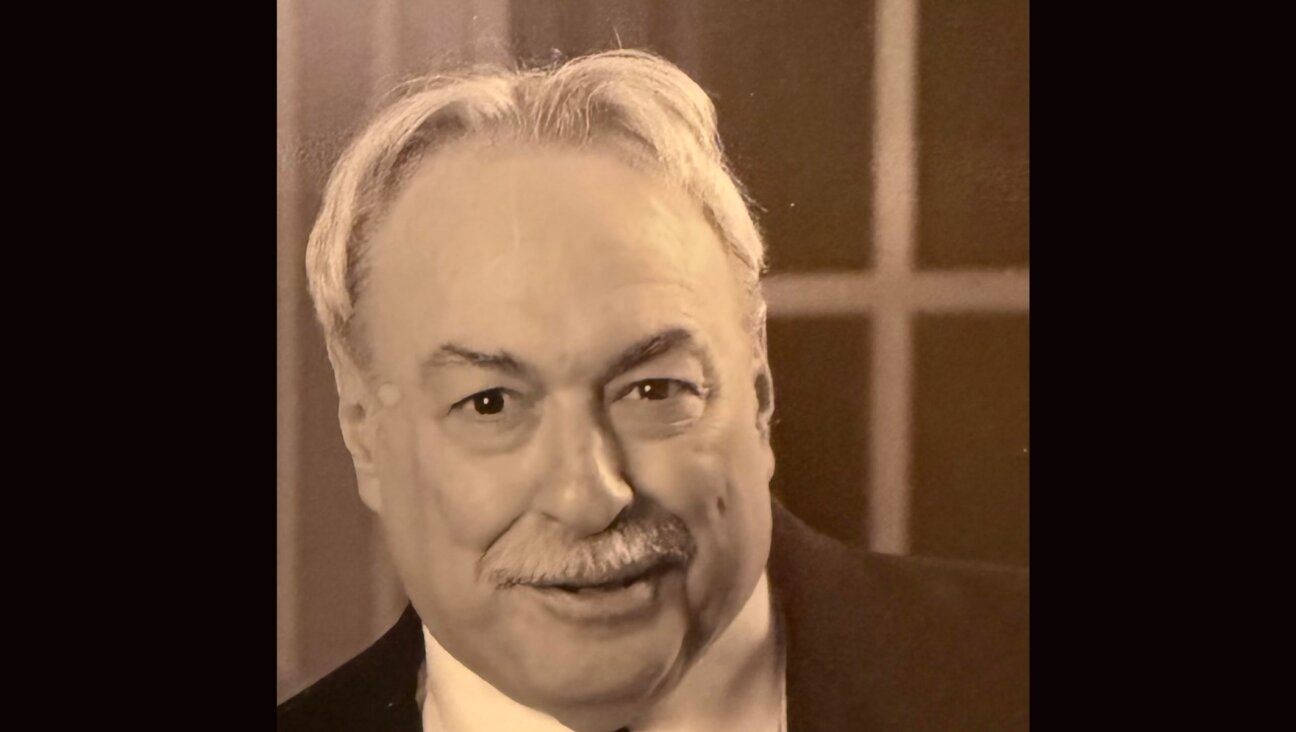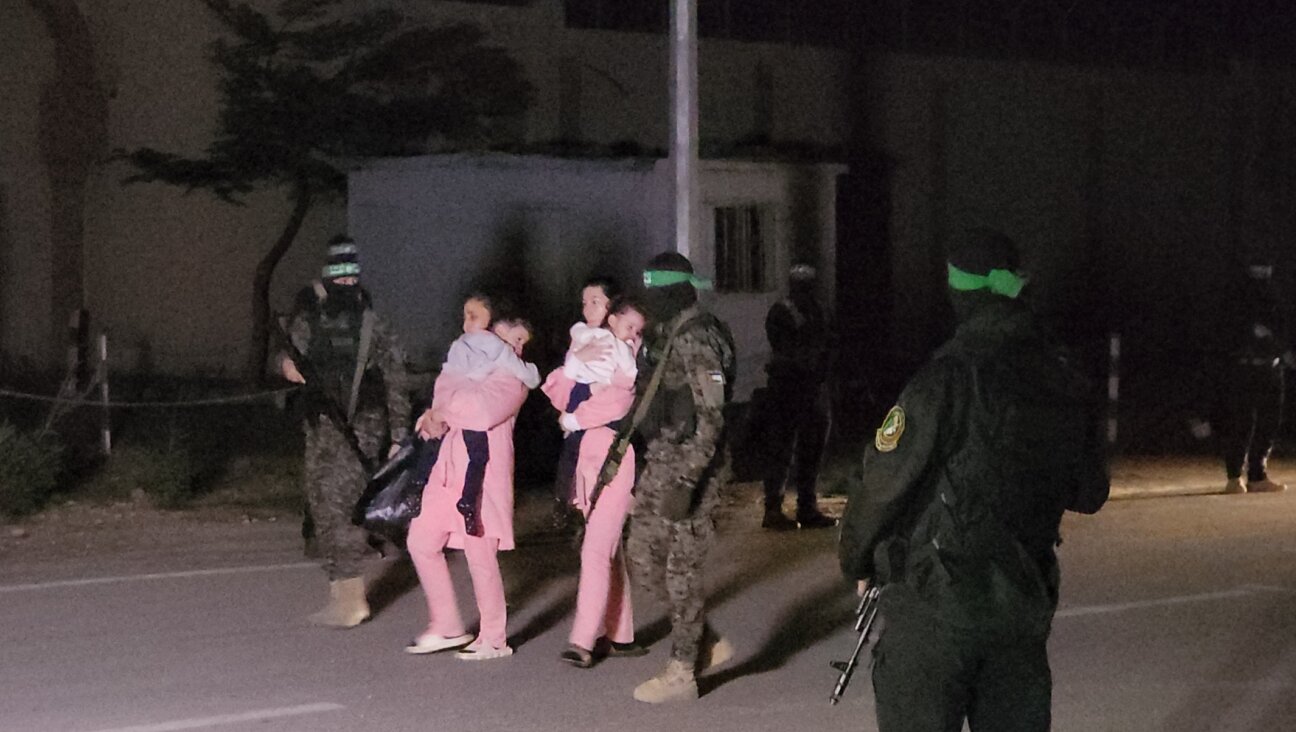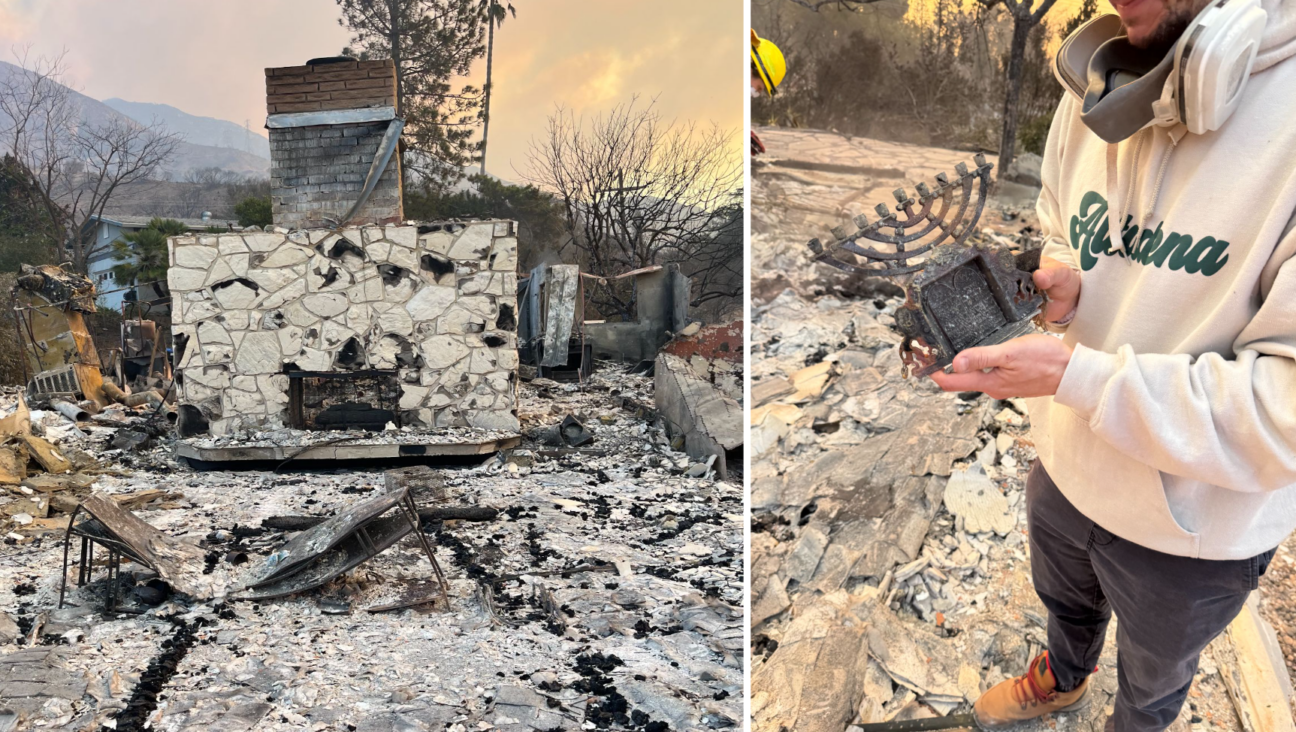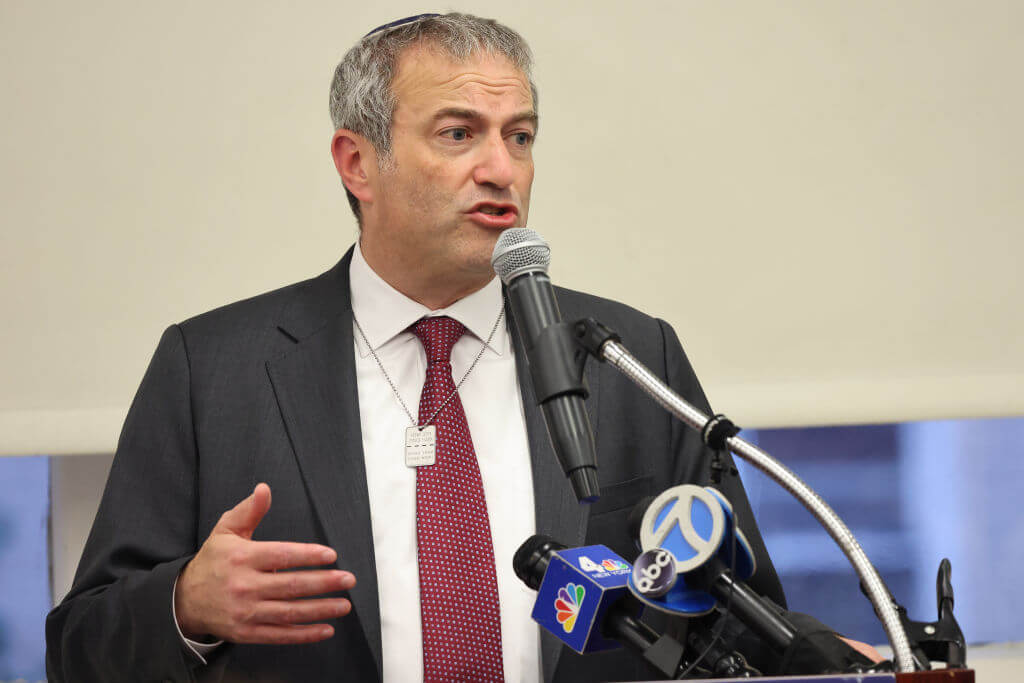What Jews can learn from the gay rights movement

New York City’s gay pride parade. Image by Courtesy of the Author
This past Sunday, I proudly joined 25,000 others at the “No Hate No Fear” march across the Brooklyn Bridge to take a stand against the violence that has afflicted New York and New Jersey’s Orthodox Jewish communities this past month and beyond. In the last three weeks alone, 14 anti-semitic incidents were reported in New York, including a machete attack at a Hannukah gathering in Monsey, NY which gravely injured five Hassidic Jews; one remains unconscious. It came on the heels of the horrific Jersey City Massacre, which took the lives of four people in a kosher market with the intent of targeting an adjacent Yeshiva full of children. Yet despite this tragedy, most people are oblivious that it even happened.
It may be true that the story was drowned out by the impeachment hearings, which were ongoing at the time. Still, something about anti-Semitic violence isn’t resonating as loudly as it should be.
As someone who is Jewish, this hurts me. But as someone who is part of another community that was once completely invisible and despised for years — the LGBTQ community — I think I might have some ideas about how to help.
For years, gay people had to hide their identity to protect themselves from discrimination and violence. And yet, today more than 60% of Americans support marriage equality, and over 70% support the right for transgender troops to serve in the military. That’s tangible change and it didn’t happen randomly.
Put simply, Jews in the U.S. and around the world are in need of the same transformation of social consciousness that has made gay liberation a global phenomenon that keeps building.
Sunday’s march was my first glimpse of what the future of American Jewish activism could look like. Several people noted that the “No Hate No Fear” march reminded them of the Israel Day parade. But I’ve marched in that parade twice, and to me, Sunday’s gathering felt much more like a pride march, or what I imagine the original pride march in 1970 — marking the first anniversary of the Stonewall Riots — was intended to be. It was less a celebration and more a rallying call for visibility, in other words, a demand to be seen as fully human.
That’s what Sunday’s march felt like for me: a day of liberation, though one without much joy. It was a demand by American Jews that our humanity be recognized, especially that of our Orthodox brothers and sisters whose suffering has gone on ignored for so long.
The uprising for justice, the need for visibility, and the power of sharing our stories are universal themes all minority groups can relate to. The success of marriage equality for instance is a story of a detested minority being seen as fully human. Perhaps it’s no coincidence that the leaders of the marriage movement — Evan Wolfson, Robbie Kaplan, and Edie Windsor — are all Jews.
The lessons of the gay rights movements and its success across the globe are the lessons we Jews need to learn in order to make the cause of fighting anti-Semitism as compelling to those who can’t see that on their own. For starters, we need to learn that coming out and building community can be powerful beyond measure. Of course, Jews are fortunate not to suffer from a lack of community. Still, Orthodox Jews are often alienated from the mainstream community, discussed in ways that make them feel denigrated when they need our support. We need to rally around them and insist on a Jewish community that encompasses all.
Similarly, we can learn from the gay rights movement that there’s power in numbers. Harvey Milk (who was also a New York Jew) famously preached that if every gay person in America came out, homophobia would be shattered. He had a point.
Finally, pride is powerful. The gay community didn’t brand itself as being anti-anti-gay. They came out loud and proud. They showed the world that the most powerful resistance was celebrating their own existence. As Bari Weiss poignantly said at last weekend’s rally, “the Jewish people were not put on Earth to be anti-anti-Semites. We were put on Earth to be Jews.” The next generation of Jewish leaders need to foster an anthem of Jewish pride that signals a clear message of who we are.
A rabbi on a college trip to Israel once asked me the tired age-old question: “Why do gay people have pride parades? You never hear about straight pride.” Maybe now he’d understand a little better: Gay people historically have taken to the streets not because they want to, but because they’ve had to. It’s the same reason Jews took to the streets last week: If we can’t stand for ourselves with dignity and pride, then who will?
Silence leads to invisibility, which leads to indifference and inaction. There is power in pride and wherever I go, I’ll let it be known that just as I am gay and proud, I’m Jewish and proud.
Peter Fox is a writer who focuses on the intersection of LGBTQ identity and Jewish world politics. His writing has been featured in The Jerusalem Post, The Advocate, and Tablet Magazine. Follow him on Twitter @thatpeterfox
A message from our Publisher & CEO Rachel Fishman Feddersen

I hope you appreciated this article. Before you go, I’d like to ask you to please support the Forward’s award-winning, nonprofit journalism so that we can be prepared for whatever news 2025 brings.
At a time when other newsrooms are closing or cutting back, the Forward has removed its paywall and invested additional resources to report on the ground from Israel and around the U.S. on the impact of the war, rising antisemitism and polarized discourse.
Readers like you make it all possible. Support our work by becoming a Forward Member and connect with our journalism and your community.
— Rachel Fishman Feddersen, Publisher and CEO
























